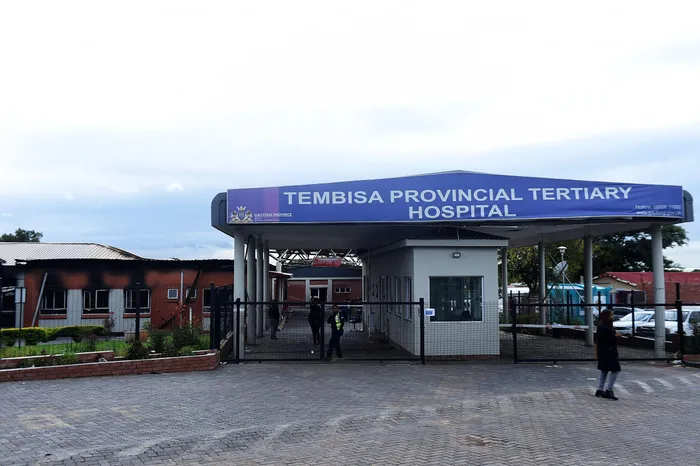
An interim report from the Special Investigating Unit (SIU) revealed that over R2 billion was looted from Tembisa Hospital by at least three syndicates.
Image: Itumeleng English / Independent Newspapers
THE Special Investigating Unit (SIU) has started submitting the names of the companies implicated in the looting of R2 billion of public funds at Tembisa Hospital to the National Treasury for blacklisting.
This emerged when Health Minister Aaron Motsoaledi was responding to written questions from ActionSA MP Alan Beesley about which of the service providers have been blacklisted by his department and the reasons for the delay in blacklisting them.
The SIU’s interim report recently revealed a network of corruption, fraud, and maladministration in procurement processes at Tembisa Hospital, involving three major syndicates responsible for the looting.
The looting involved 207 service providers who traded with the hospital under 4,501 purchase orders that were found to be irregular.
In his response to the question, Motsoaledi cited a recent meeting of the National Health Council (NHC), a forum which includes him and provincial Health MECs, saying it had requested that the SIU blacklist the companies during the meeting, as the department lacks the mandate to do so.
“The response we got was that only the National Treasury can blacklist companies from participating in government contracts.
“The SIU informed us that they are submitting the names of these companies to National Treasury for the purpose of blacklisting,” Motsoaledi said, adding that they will wait for the National Treasury processes to be completed.
Motsoaledi also told ActionSA’s Kgosi Letlape in a separate answer that the department wants “special due diligence” on the implicated parties.
“In the meantime, SIU has been asked to submit to provinces the list of such companies so that even if there is no blacklisting yet, the heads of department pay special due diligence and investigations before they finalise an award to such companies if bid adjudication committees have recommended them,” he said.
Beesley said his party was deeply concerned by Motsoaledi’s response, which effectively confirmed that none of the 207 implicated suppliers had been blacklisted.
“This means that the individuals and companies who siphoned off billions meant for public health services to buy palatial mansions and Lamborghinis are still able to do business with the state,” he said.
Beesley also said Motsoaledi’s assertion that only the National Treasury is responsible for blacklisting was only partly true.
“Blacklisting corrupt suppliers is the collective responsibility of the relevant accounting officers, such as the Tembisa Hospital CEO and the Gauteng Health head of department, National Treasury, and the Presidency.
“However, in practice, this collective responsibility has translated into no responsibility."
The Standing Committee on Public Accounts heard earlier this year that 467 individuals and companies were recommended to be added on the Restricted Supplier Register, but only one appeared.
Beesley confirmed ActionSA lodged a complaint with the Public Protector to investigate what he described as systemic maladministration.
Cape Times